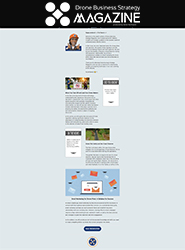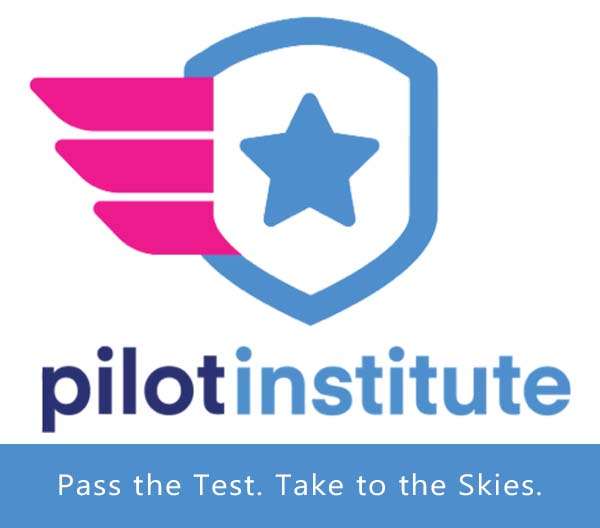
The drone services industry has witnessed significant growth in recent years, driven by the increasing demand for unmanned aerial vehicles (UAVs) in various sectors, including agriculture, construction, and infrastructure inspection. With this growth comes an influx of commercial drone pilots looking to start their own drone services business. However, starting a drone services business comes with its own unique set of challenges.
Based on current research, this article provides an overview of the major concerns for commercial drone pilots when starting a new drone services business, including regulatory compliance, business planning, safety, marketing and branding, financial management, and data management. Understanding these challenges can help aspiring commercial drone pilots navigate the complex terrain of the drone services industry and set their businesses up for success.
Major Start-up Concerns for Commercial Drone Pilots
Based on current research, some of the major concerns for commercial drone pilots when starting a new drone services business include:
- Regulatory Compliance
- Business Planning
- Safety
- Marketing and Branding
- Financial Management
- Data Management
Major Start-up Concerns for Commercial Drone Pilots: DEFINED
- Regulatory Compliance: Compliance with aviation regulations and airspace restrictions is a critical concern for commercial drone pilots. They need to be aware of the rules and regulations related to drones and follow them to avoid fines and legal issues.
- Business Planning: Developing a business plan is essential for commercial drone pilots as it helps in identifying the target market, pricing strategy, and revenue streams. Without a well-planned business strategy, it is challenging to operate a successful drone services business.
- Safety: Safety is a significant concern for commercial drone pilots as they are responsible for ensuring that their drones operate safely in the airspace. Pilots need to have the right training, equipment, and safety protocols in place to avoid accidents and injuries.
- Marketing and Branding: In a competitive market, commercial drone pilots need to focus on building a strong brand and marketing their services effectively. This involves creating a website, social media presence, and marketing materials to attract clients.
- Financial Management: Managing finances is crucial for any business, and drone services are no exception. Commercial drone pilots need to keep track of their income and expenses, including drone maintenance and repair costs, to ensure they are profitable.
- Data Management: Drones are used for a variety of tasks, including data collection, analysis, and delivery. Commercial drone pilots need to have robust data management systems in place to ensure that data is secure and can be easily accessed and analyzed by their clients.
Overall, starting a drone services business requires careful planning and attention to detail to ensure success.
Avoiding Drone Pilot Pitfalls
Some of the biggest start-up mistakes that drone pilots may make when launching a drone business include:
- Failing to research the market and competition thoroughly
- Underestimating the importance of a solid business plan
- Neglecting to secure necessary licenses and permits for legal operation
- Overlooking safety considerations and failing to adhere to industry regulations
- Not properly managing finances and underestimating expenses
- Failing to establish a strong brand identity and marketing strategy
- Ignoring the importance of customer feedback and failing to adapt to changing customer needs and preferences.
PRO TIP | Common Sense
Unless you can accurately identify barriers to entry, there will be no way to overcome them. Always be learning, scanning, inquiring, evolving, informed, and indelibly curious.
The Takeaway
Starting a drone services business can be a lucrative and rewarding venture, but it requires careful planning, strategic thinking, and a comprehensive understanding of the regulatory landscape, safety considerations, financial management, marketing and branding, and data management. By addressing these key concerns, commercial drone pilots can establish a solid foundation for their businesses and position themselves for success in a rapidly evolving industry.
It is important to stay up-to-date with the latest developments in drone technology, regulations, and best practices, and to continue to innovate and adapt to meet the changing needs of customers and the market. With the right mindset, skills, and knowledge, commercial drone pilots can soar to new heights and achieve their goals in the drone services business.
Be smart, safe, and forever fly!
If you have any questions, let us know! If you’d like to hire us, you can get more information here.
Written by: Tony Marino, MBA – FAA Certified Part 107 Commercial Drone Pilot and Chief Business Strategist at Aerial Northwest
References
Barman, B. K., & Islam, M. (2020). Factors affecting the adoption of drones by small and medium enterprises. Journal of Small Business Management, 58(4), 779-795.
Zorrilla-Casanova, J. A., & Jaramillo-Morillo, M. C. (2019). Key issues and challenges for the commercial drone industry in the European Union. Journal of Air Transport Management, 81, 101711.
Johns, N., & Froud, J. (2021). The rise of drones in the business world: Exploring the key drivers and challenges for SMEs. Journal of Business Research, 133, 326-336.

DRONE BUSINESS STRATEGY MAGAZINE
A free digital publication made exclusively for all small business drone pilots to them help start-up, become profitable while sustaining a competitive advantage within the drone service industry sector they opt to serve.
“If you love to fly, we’d love to have you come aboard!”
We share your information with no one. Our Privacy Policy.









Leave a Reply
Your email is always safe with us.